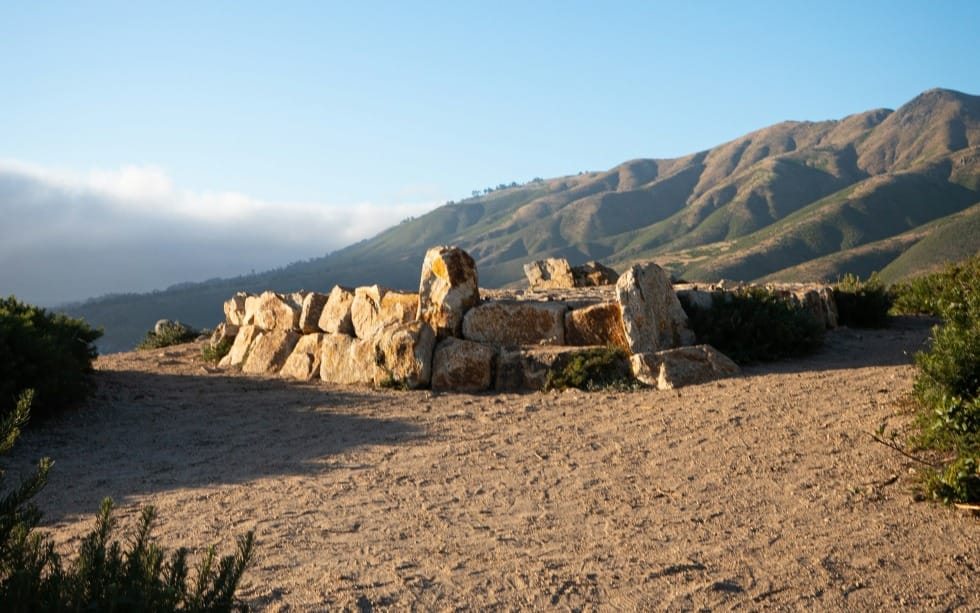Are There High Places in Your Life?
What is a high place? High places are mentioned over a hundred times in the Old Testament. As 2 Kinds and 2 Chronicles develop, we see this constant theme of kings who do and do not do what is right.

2 Kings 9 - 13; 2 Chronicles 25
Today's Scripture Passage
A Few Thoughts to Consider
What is a high place?
High places are mentioned over a hundred times in the Old Testament. As 2 Kinds and 2 Chronicles develop, we see this constant theme of kings who do and do not do what is right. Joash is one of the good ones, and 2 Kings 12:1-2 says, 1 “In the seventh year of Jehu, Joash became king, and he reigned forty years in Jerusalem. His mother’s name was Zibiah; she was from Beer-sheba. 2 Throughout the time the priest Jehoiada instructed him, Joash did what was right in the Lord’s sight.”
Then it goes on to say in Verse 3, “Yet the high places were not taken away; the people continued sacrificing and burning incense on the high places.” In the Old Testament, high places were important and significantly impacted religious and cultural life. They were usually elevated areas where people set up altars and worshiped. Being up high was considered closer to the heavens, making it a special place to connect with God or gods.
Initially, high places were good. Abram built an altar to God at Shechem and Hebron, Jacob set up a stone pillar at Bethel, and Moses met with God on Mount Sinai. “Joshua set up stone pillars after crossing the Jordan (Joshua 4:20) and considered this a high place of worship because the Israelites “came up from” the Jordan onto higher ground. The high places were visited regularly by the prophet Samuel (1 Samuel 7:16).”[1]
But often, the use of high places in the Old Testament was associated with worshipping false gods. We see this on Mount Carmel, where the prophet Elijah challenged the prophets of Baal in a dramatic contest to prove the power of Yahweh over the Canaanite god Baal (1 Kings 18). And we see this at Bamoth-Baal. Mentioned in Numbers 22:41, this is where the Moabite King Balak took Balaam to see the extent of the Israelite camp, hoping that Balaam would curse them from there.
Rather than obeying God’s commands to tear down these high places, many kings chose to let them remain. 1 Kings 11:7 says, “Solomon built a high place for Chemosh, the detestable idol of Moab, and for Molech, the detestable idol of the Ammonites, on the hill opposite Jerusalem.” 1 Kings 15:14 notes, "Although he did not remove the high places, Asa was wholeheartedly devoted to the Lord his entire life.” And now we see this same theme with King Joash of Judah.
God knew that as long as these high places remained, his people would pursue other gods than him. As Adam Clarke notes, “Without the total destruction of these there could be no radical reform.”[2] Still, despite knowing God’s desires, king after king allowed these high places to remain, thus making it all the easier for God’s chosen people to reject him.
A Meditation to PRAY
Praise: Father, I praise you for your unwavering faithfulness and mercy. Just as Joash did what was right in your eyes, I see the righteous path you’ve set before me. Your guidance shows me the way, even when it’s tough.
Release: Lord, I admit that there are "high places" in my heart—spots where I haven’t fully let you in. These are my personal areas of pride, my desire to do things my own way, and my tendency to cling to old habits. I let go of these now, knowing they get in the way of my relationship with you.
Ask: Help me tear down these high places. Give me the same courage and strength that Joash had when he fixed up your temple so I can work on my spirit. Show me what needs to go, and give me the push to get rid of it so I can truly live for you.
Yield: I trust in your plan and give myself over to your will. Lead me on the right path and make my heart more like yours. As I try to stick to your teachings and listen to your guidance, shape me into someone who shows your glory and love in everything I do.
A Challenge to Act Like Christ
In a way, these high places in the Old Testament point us to Jesus by illustrating our need for a perfect Savior who fulfills God's law perfectly and provides the only way to reconcile with God, free from our flawed and sinful attempts at righteousness. Jesus' life, death, and resurrection offer the ultimate removal of these spiritual "high places" by providing a direct, unblemished pathway to God, correcting our deviations, and aligning us with true worship and obedience.
Just as the Israelites worshipped false gods in high places, we are tempted to do the same. Instead of physical high places, there might be mental high places we have erected in the corners of our minds. Places we don’t want God to touch. Maybe there are secret sins in our lives that we hope others will never know about, addictions we minimize, or foolish choices we habitually make. While we might think they’re no big deal, it’s these high places that God wants us to confront.
If we don’t, these high places might well be the undoing of ourselves and our children over time.
*Unless you specify otherwise, comments and questions you ask may be featured in upcoming podcast episodes.
[1] https://www.gotquestions.org/high-places.html
[2]Adam Clarke, Adam Clarke’s Commentary on the Whole Bible, Accordance electronic ed. (Altamonte Springs: OakTree Software, 2004), paragraph 11283.




Comments ()